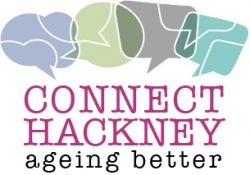Black Lives Matter
The Connect Hackney media group recently met on Zoom to discuss the Black Lives Matter movement. Hosted by Media group facilitator, Natasha Julien.
Natasha: What are your thoughts on the movement?
Margaret: I was surprised how a lot of different nationalities, a lot of white people and others, were involved – it was like an international movement really.
Natasha: Yes, it’s gone global, hasn’t it? We’ve seen all the protests going on during the pandemic, which I think a lot of people were really worried about.
Margaret: Yes, well people were prepared to take the risk with the virus and come out and protest. Susan: That was very powerful – at that stage people were really staying in. Florence: I’m happy it’s gone to this stage where it becomes more international because the Black Lives Matters was affecting only Caribbean people and neglecting people of African heritage. So what is going on – I can see it as a more unifying protest.
The movement
Natasha: For this campaign to be successful, for it to be more than a slogan, what does it need to achieve?
Florence: To correct institutional racism embedded in the system. I can remember looking at children that would pass through the primary education, especially our male children, and you could count how many went through to post primary education. We need our boys, as we need our girls as well. Our male children should have that equal access to education which is coming up now and you can see the difference. You go to the Metropolitan University before, you would hardly see male students of black origin, but now it’s improving and now with that demonstration, I feel it’s becoming more global. Susan: It’s really multi-faceted and you’ve got to be prepared to challenge yourself and challenge what’s happening at every level. You need the big institutions to be behind you, because you start to see people being better represented, more people at university, and you want that to be followed all the way through so that people are really getting into power and changing things and leading the change.
Florence: If we don’t give them (young people) the opportunity, they are not going to grow to do it. Once you eliminate them, or you label a particular race, then you won’t have that race turning up in the government. Our children of this generation… their thinking is broader than the way we think, because they travel more, they get together more than we did. I can see something more successful coming up gradually.
Windrush
Natasha: The Windrush scandal has shown how the system in itself was perpetuating the inequality that has been felt by black people in the UK. Ann: I’m white, but I’m absolutely ashamed to think that we still live in a society like this. I know it’s not enough to say this, but I think in the eyes of God, every man, woman and child is equal and it doesn’t matter where they come from and we have to bring up our families with that type of attitude.
George Floyd
Susan: We get a lot of information through social media. It was so horrific the way that George Floyd died, but the fact that you could see it – there was no hiding it, you saw someone die in front of you. It’s so shaming this can be happening.
Natasha: It’s really confronting the brutality isn’t it?
Florence: It’s the age of technology that has really helped now. When it happened, everyone saw it and everyone’s still seeing it and they can’t hide it.

